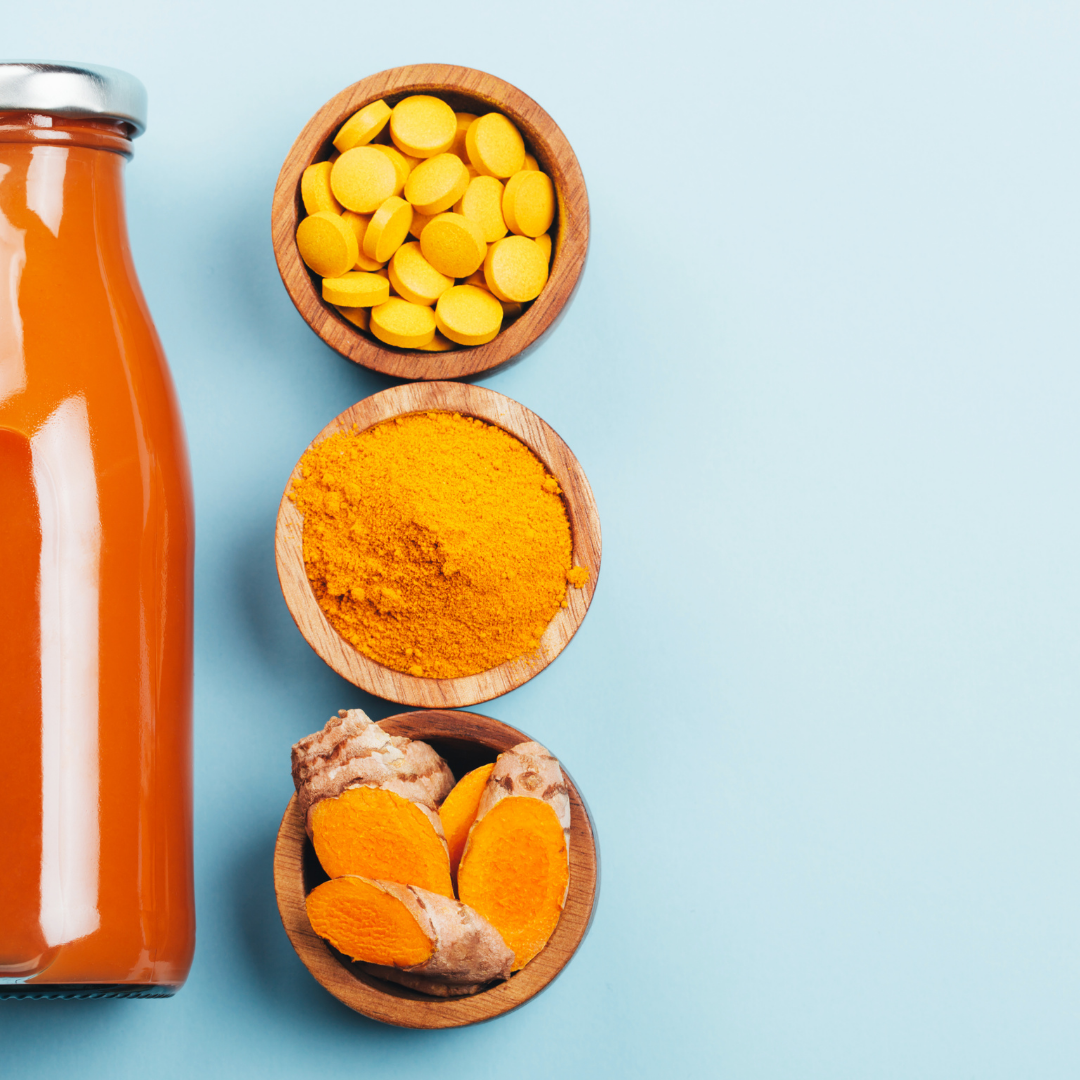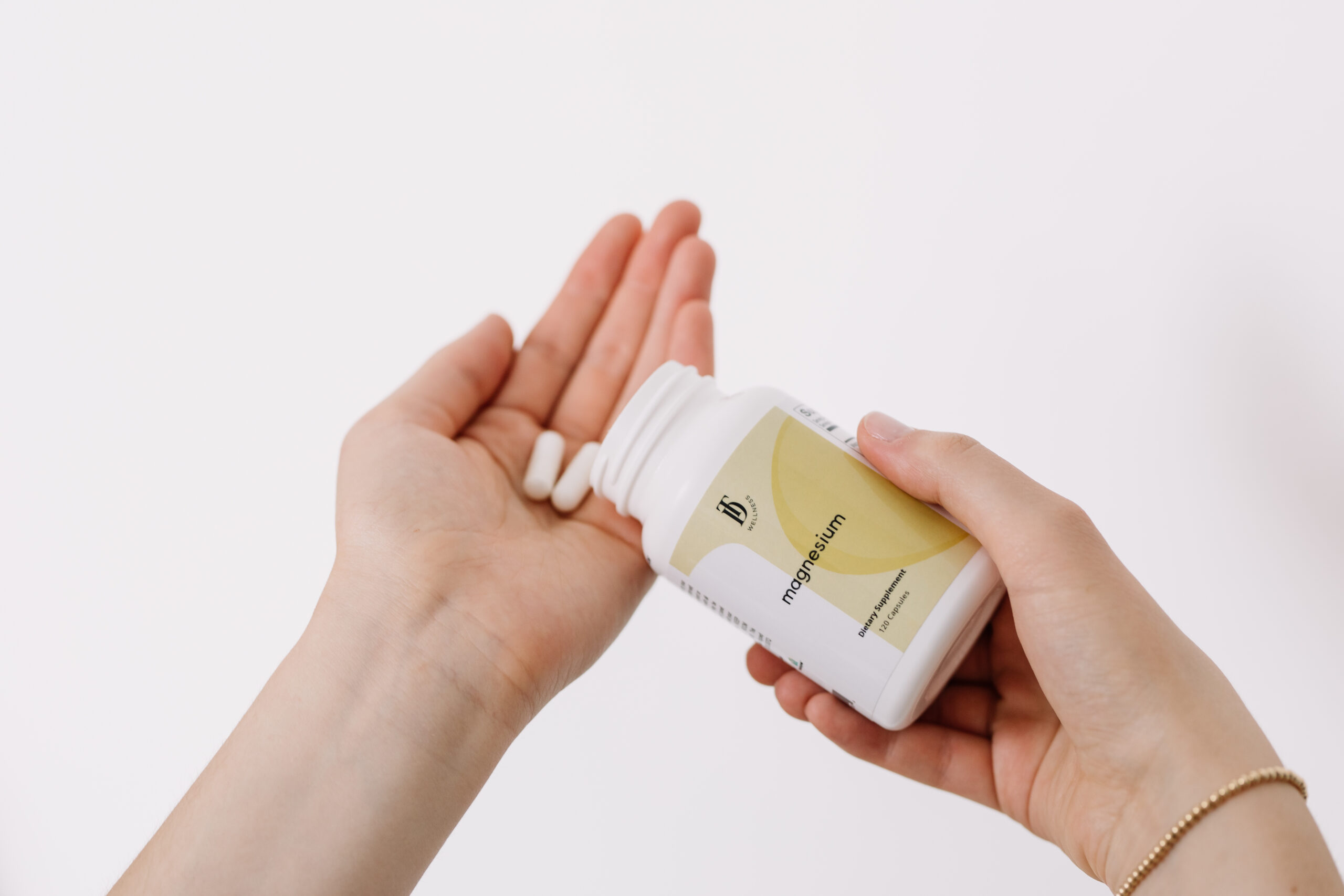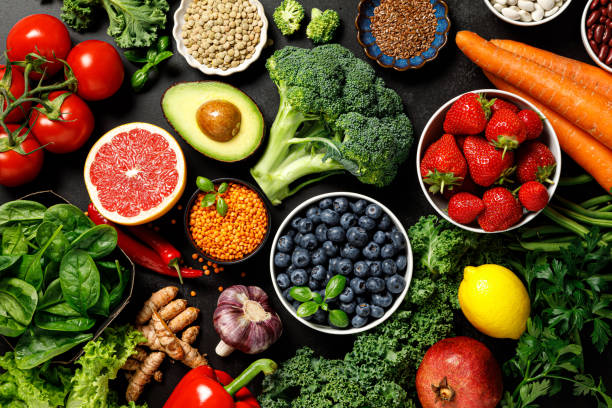Skip the NSAIDs & Combat Your Pain & Inflammation With Natural Alternatives

You’re pushing your body multiple times a week, trying to be the best athlete you can be. You wake up early to get your workouts in, push yourself all day long, and by the end of the day, with an aching body and a headache, you decide to pop an Advil.
Or maybe you hurt yourself during a workout but you don’t want to pause your training or workout plan, so you block out your pain and inflammation with some ibuprofen. While this may help relieve the pain in the short term, taking these medications regularly could have health consequences in the long run.
What Are NSAIDs?
Nonsteroidal anti-inflammatory drugs (commonly known as NSAIDs) are pain relief medications that many people reach for as their first choice for dealing with pain. In fact, every day, more than 30 million people reach for NSAIDs to relieve pain. There’s a lot of pain relief drugs out there, but they aren’t all NSAIDs. So, how do you know which ones to look out for?
You might be thinking, “Umm Taylor, which drugs are NSAIDs?”. Some common ones you might use or recognize are ibuprofen (Advil, Motrin), Naproxen (Aleve, Anaprox DS, Naprosyn), Celecoxib (Celebrex) and Aspirin (Bayer).
How Do They Work?
NSAIDs block pain by reducing the amount of inflammation. They do this by blocking the effect of cyclo-oxygenase (COX) enzymes. These COX enzymes normally help create chemicals called prostaglandins, which contribute to your inflammation. By blocking the enzyme, the production of prostaglandins decreases, and your inflammation and pain is reduced.
What’s The Problem With Pain Killers & NSAIDs?
Before you mindlessly take any of these medications after an intense workout or even for precaution, as some people do, I want you to know the potential side effects of taking NSAIDs. I know that in our society, these pills are found in pretty much every home. Even though they are a common solution for relieving pain, it doesn’t mean they should be.
Nonsteroidal anti-inflammatory drugs can be known to be blood thinners. This means it may take extra time for blood clots to form. While this may be good for people who are at risk for blood clots, this could be harmful to athletes or active individuals who are more susceptible to getting cuts and injured. Be aware that excessive bleeding could occur as well as getting bruised more easily while taking NSAIDs.
Long-term use of NSAIDs can lead to:
-
Gastrointestinal issues like leaky gut, heartburn, ulcers, bleeding, nausea, and vomiting
-
Increased risk of asthma and eczema in children
-
Cardiac problems
-
Increased risk of stroke and heart attack
NSAIDs can actually cause gastrointestinal harm, even in the short term. Mild side effects, which include nausea, indigestion, abdominal pain, flatulence, and diarrhea, may affect 10% to 60% of patients. For some people who are at a higher risk, these medications can cause more serious issues like upper GI bleeding, even in smaller doses. The longer you take NSAIDs, the higher your risk becomes for these health issues.
A common issue I see in athletes that I work with are gut problems. NSAIDs can damage the lining of your gut. This damage causes absorption issues, which inhibit you from getting all your necessary vitamins to thrive. It can also cause your gut’s permeability to increase, which allows bigger molecules to cross your gut barrier. Those molecules can enter into your bloodstream and travel to other parts of your body where they aren’t supposed to be. This can cause your immune response to ramp up to attack those chemicals. In the long run, this just causes even more inflammation throughout your body! But wait, this is what you are trying to avoid, right?!
So what is an athlete to do? You want to recover faster and not dread the unavoidable pain that comes after an intense but successful workout. How about trying some NSAID alternatives that are natural and safe.
NSAID Alternatives
There are some great natural pain relief options that you can choose instead of exposing your body to potentially harmful medication risks.
Natural Anti-Inflammatory Supplements
Curcumin
Turmeric is a widely known spice used in curry dishes and other Indian cuisines. Curcumin is the active anti-inflammatory chemical in turmeric. Thousands of studies have been published showing the promising results of taking curcumin daily to reduce inflammation and soreness and quicken the recovery time of injuries.

Fish Oil
Fish oil contains large amounts of omega-3 fatty acids. While you can get these through certain kinds of seafood, taking a supplement may be an easier alternative for you. Omega-3’s are some of the most natural and effective anti-inflammatory agents available. You can find a supplement HERE at our store.
Ginseng
Athletes who supplement with ginseng may experience reduced muscle soreness during the 24-hour period immediately after exercise. In one study, this was seen not only in high doses (960 mg/day) but in low doses(160 mg/day) as well.
Magnesium
Magnesium is an incredible co-factor for so many different processes in the body. It is helpful to promote relaxation of the muscles and aids in recovery. Both oral magnesium as well as epsom salt baths can be helpful. My favorite oral magnesium capsules are made by Taylor Dukes Wellness.
Consume An Anti-Inflammatory Diet
Being a professional athlete can take a toll on your body. Consuming the right foods is key to optimizing your health and performance. Rather than increasing inflammation by eating processed foods, additives and sugar, you should eat an abundance of nutrient-rich foods that help combat inflammation.
Eating this way can reduce daily inflammation and the pain that may come with a mild sprain or injury. Your body will be able to bounce back faster, so you can get back in the game. Eat foods that contain fat-soluble vitamins like A,E,D and K as well as omega-3’s and glutathione boosting nutrients.
Be aware that some people may have a genetic mutation that prevents optimal vitamin D uptake. For these people, higher doses of vitamin D are recommended. This is why functional medicine lab testing is highly encouraged for those who want to reach optimal performance and health. Functional testing can tell you if you have this genetic variance or not. Testing can also tell you what nutrients you are deficient in so that your body can not only perform better, but also recover quicker.
Reduce Intake Of Inflammatory Foods
For many, this is gluten and dairy, along with processed foods and high sugar intake. However, there could be many other foods that you are sensitive to that may be causing low-grade inflammation- without even knowing it! One way to find out is to use a food sensitivity test. This functional medicine test analyzes a handful of different foods with a simple finger prick. Once you know these trigger foods, you’ll be able to avoid them and help reduce your inflammation levels.
Optimize Your Health With The Help Of A Functional Medicine Provider
We are always working on new ways to serve you on your health journey. Be the first to know about new offerings, health articles, and more by clicking here and filling out your information so we can be in touch.
Share This Post:
Your Wellness Deep Dive
- Be the first to learn about new healthy living resources, blog posts, and exclusive TDW offerings by getting on my insider list.
- Find healthy living products with ingredients you can trust – the same ones I personally use for myself and my family – in the TDW Shop. Check out our protein powders, electrolytes, supplements, and more!
- Get personalized support through the TDW Community. When you become a member, you get access to functional medicine expertise from me and my team, functional medicine lab testing and 1:1 consults, a digital library of exclusive wellness content, live monthly Q&As with me, and so much more!
YOU MAY ALSO LIKE:
Helping you get your gut right, improve energy, boost immunity, balance hormones, sleep better and look + feel your best
DISCLAIMER
PRIVACY POLICY
TERMS + CONDITIONS
ACCESSIBILITY
© 2025 Taylor Dukes Wellness
LEARN
SHOP
ABOUT
TDW Community
Free Guides
Blog
TDW Store
Fullscript
About Taylor
Press
Contact
COOKIE POLICY
SITE CREDIT
Trusted Products



